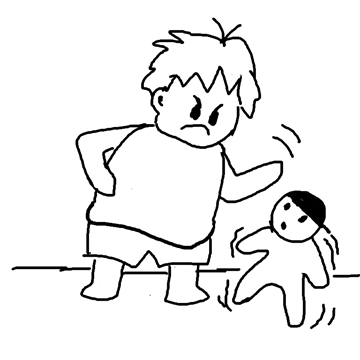Tips on Bully-Proofing Your Child
by on 02/08/2025 ...

Having been bullied when I was in primary school, this is a topic that is very dear to my heart and I would very much like to teach parents how to bully-proof their kids. Bullies can indeed make your child’s life a “living hell”. Kids become afraid to go to school or participate in activities. Schoolwork is often affected and the kid sometimes becomes withdrawn and depressed.
Bullying in this day and age is not only confined to physically being bullied, such as being pinched or punched or having our bags stolen and our lunch money taken away but it also involves virtual bullying. A child can be ostracized by a bully, both in the real world and in the virtual world. This I think is a double whammy for the child and if parents are equipped to deal with it, they can better help the child. So how do you help prevent your child from being a target? How do you stop bullying that is already happening to your child? 
Communication
Start by opening up a conversation about bullying or if you have been a victim of bullying when you were younger, share your experience and how it affected you and how you dealt with it. This discussion can be carried on with children of any age, even as young as 5 years old. If possible get your family members (e.g., your spouse and all your children) together and share your experiences about bullying with each other. During this conversation if your child were to bring up that he or she is indeed being bullied, immediately offer them your support and praise him or her for being brave enough to share. Address his worries and reassure him with compassion. That will help make things easier for him to open up and be receptive to any suggestions or advise that you might offer. Find out as much as you can about the bullying so that you can help them deal with it and also enlist other people of authority to help with the situation. Perhaps you can speak to your child’s teacher and alert them regarding what your child has shared. Ask the teacher what are the school’s policy regarding bullying and how do they deal with it.
Safety in numbers
Encourage your child to hang out in a group or at least find one or two people they can buddy up with. If your child sits with a few friends during recess, the bully is less likely to approach them. Even going to the toilet, encourage them to adopt the buddy system and go with a friend. Wherever bullies may lurk, encourage your child to always try to go with a buddy.
Identify what is the target of the bully
Identify what exactly “attracts” the bully to your child. Is it because your child is carrying an expensive cell phone or some expensive electronic gadget? Does your child have a lot of money on him or her to buy lunch? If so, for the time being perhaps you can pack your child’s lunch for them and let them go to school without a cell phone or an electronic gadgets.
Control emotions
Teach your child that when a bully approaches them, they should to keep as calm as possible, if the bully tries to make them angry by making hurtful remarks, practice ignoring those remarks, calmly tell the bully to stop or just walk away. If a bully tries to hurt them physically, the best way is to try and run away as fast as they can and seek help from the closest adult they can find.
Parents, you do not have to fight this battle all by yourself, confronting the bully’s parents is usually not the best approach. Sometimes it helps but it is encouraged that you approach your child school’s officials such as the teacher, or principal and let them mediate.
About the Author
Kopi Soh has a MA in Psychology, Specializing in Marriage, Family and Child Counseling. Her area of specialty is in working with children, adolescents, couples and families. She is also an artist and has published two self-help best sellers distributed by MPH, available in all bookstores throughout Malaysia.
Website:
- Oh I thought I Was The Only One – http://www.kopisoh.me/story/
- Oh I Thought I Was The Only One 2 (for ages 9 and up) http://www.kopisoh.me/story2/

































